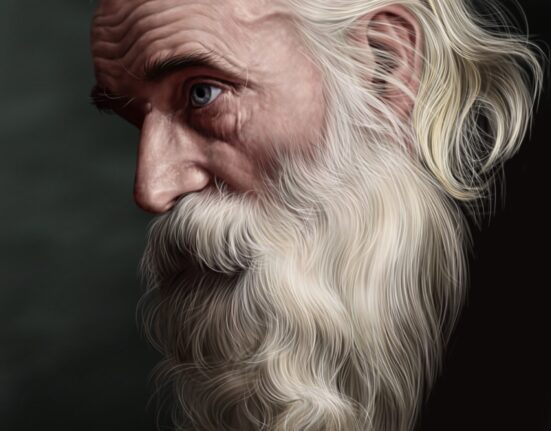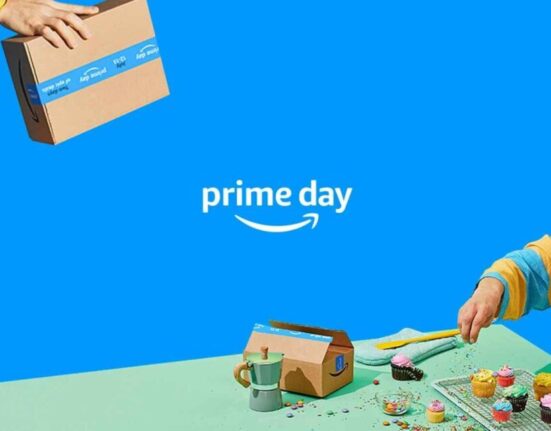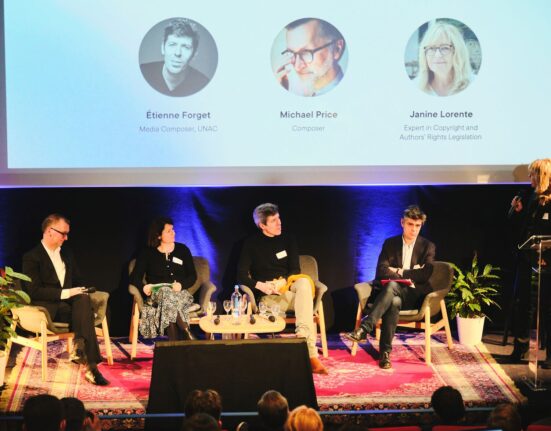—
Inside the BBC’s Strategy Meeting
Picture this: a lavish private dining room at an upscale London hotel filled with top British TV executives and creatives, engaging in a high-stakes discussion about the future of traditional television. The kaleidoscopic-patterned wallpaper provided a colorful backdrop as they munched on their meals, surrounded by giant artworks that symbolized both creativity and commerce.
One intriguing suggestion floated during this summit was the potential merger of BBC Studios with Channel 4 to create a formidable entity capable of rivaling industry behemoths like Disney Plus, Netflix, and Amazon. While this idea may not have materialized yet, it underscores the pressing need felt by many within the broadcasting realm to explore innovative measures to safeguard British-originated content from being overshadowed by global streaming giants.
—
The Call for Consolidation
Renowned figures in the television landscape, such as Sir Peter Bazalgette and Lord Vaizey, have sounded alarm bells regarding the imminent threat faced by traditional broadcasters like BBC, ITV, Channel 4, and Channel 5. They warn that without strategic interventions like mergers or enhanced collaboration, public service broadcasting in the UK could be on a downward spiral towards extinction within two decades.
The looming specter of dwindling resources and viewership patterns shifting towards digital platforms has propelled industry veterans to advocate for radical changes to ensure the sustainability of British-focused TV offerings amidst an increasingly competitive landscape dominated by deep-pocketed American streaming services.
Expert Insights:
– Sir Peter Bazalgette emphasizes the urgent need for regulatory bodies to devise concrete strategies to rescue British television from impending demise.
– Lord Vaizey boldly suggests merging ITV, Channel 4, and Channel 5 into two domestic broadcasters as a survival tactic against mounting challenges.
—
The Battle for Distinctiveness
Amidst debates over consolidation lies another narrative championing diversity and distinctiveness in programming. Figures like Sarah Rose from Channel 5 vehemently oppose consolidation efforts, arguing that maintaining multiple broadcasters is crucial for offering varied content choices that cater to diverse audience preferences. This stance advocates for nurturing smaller production companies and upholding plurality in British media consumption habits.
On another front, Alex Mahon of Channel 4 extols the virtues of preserving their unique competition structure as a cornerstone of excellence in UK public service television. These divergent viewpoints illuminate a broader struggle within the industry between unity through mergers versus strength through individuality.
—
The Digital Evolution: A Glimpse into Tomorrow
Peering into a crystal ball projecting television’s landscape in 2035 reveals tantalizing technological advancements reshaping how audiences engage with visual content. Envision interactive viewing experiences where augmented reality seamlessly merges with traditional broadcast mediums—a harmonious blend promising more immersive storytelling canvases for creators to explore.
As YouTube emerges as a dominant force shaping entertainment consumption patterns today, forecasts predict an exponential rise in globally-scaled streaming platforms vying for viewer attention. With juggernauts like Netflix, Disney+, Apple TV+, and Amazon Prime Video redefining content distribution norms on a global scale—primed with substantial financial backing—the battleground shifts towards securing market share amidst an ever-evolving digital frontier.
Expert Insights:
– Kate Scott-Dawkins foresees heightened competition between UK broadcasters and US-based media conglomerates armed with disparate business models poised to reshape industry dynamics.
– The advent of voice-controlled interfaces coupled with personalized content curation hints at transformative viewing experiences awaiting audiences navigating tomorrow’s entertainment ecosystem.
—
Redefining Revenue Models
A fundamental challenge gripping traditional British broadcasters stems from their inability to match the financial muscle wielded by streaming titans like Netflix boasting staggering valuations exceeding billions. The steady erosion of revenue streams compounded by diminishing advertising revenues poses existential threats necessitating swift adaptation strategies before obsolescence beckons at their doorsteps.
While individual broadcasters grapple with sustainability dilemmas exacerbated by shrinking budgets and evolving consumer behaviors favoring on-demand viewing options—proposals advocating for unified gateways or collaborative apps housing public service broadcaster content offer glimpses into potential lifelines amid turbulent seas threatening industry stability.
Expert Insights:
– Industry voices clamor for innovative revenue-sharing models empowering traditional broadcasters to fortify their positions against cash-rich competitors dominating digital airwaves.
– Pioneering ventures such as ITVX showcase proactive responses embracing modern streaming paradigms aimed at future-proofing legacy brands against encroaching disruptions challenging conventional broadcasting norms.
—
Forging Collaborative Pathways
Amidst calls for unity among traditional rivals lies an audacious suggestion envisioning BBC iPlayer morphing into an all-encompassing portal aggregating diverse public service media offerings under one digital roof—an ambitious endeavor seeking convergence amid escalating market pressures exerted by well-funded international players dictating industry trends across borders.
The notion of consolidating diverse genres ranging from game shows to news programs within a singular streaming interface evokes visions of streamlined access benefiting audiences hungry for expansive content libraries sourced from reputable broadcast networks synonymous with quality programming standards upheld over generations past.
—








Leave feedback about this